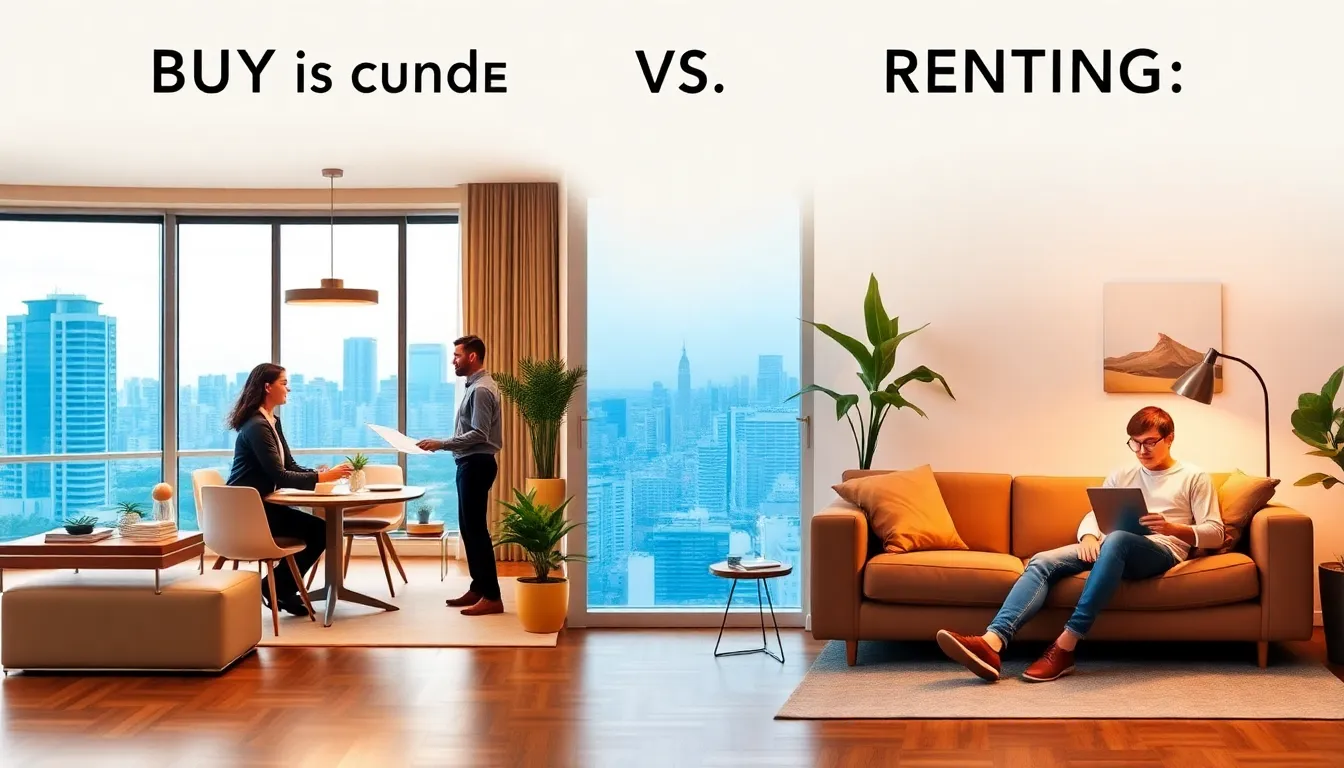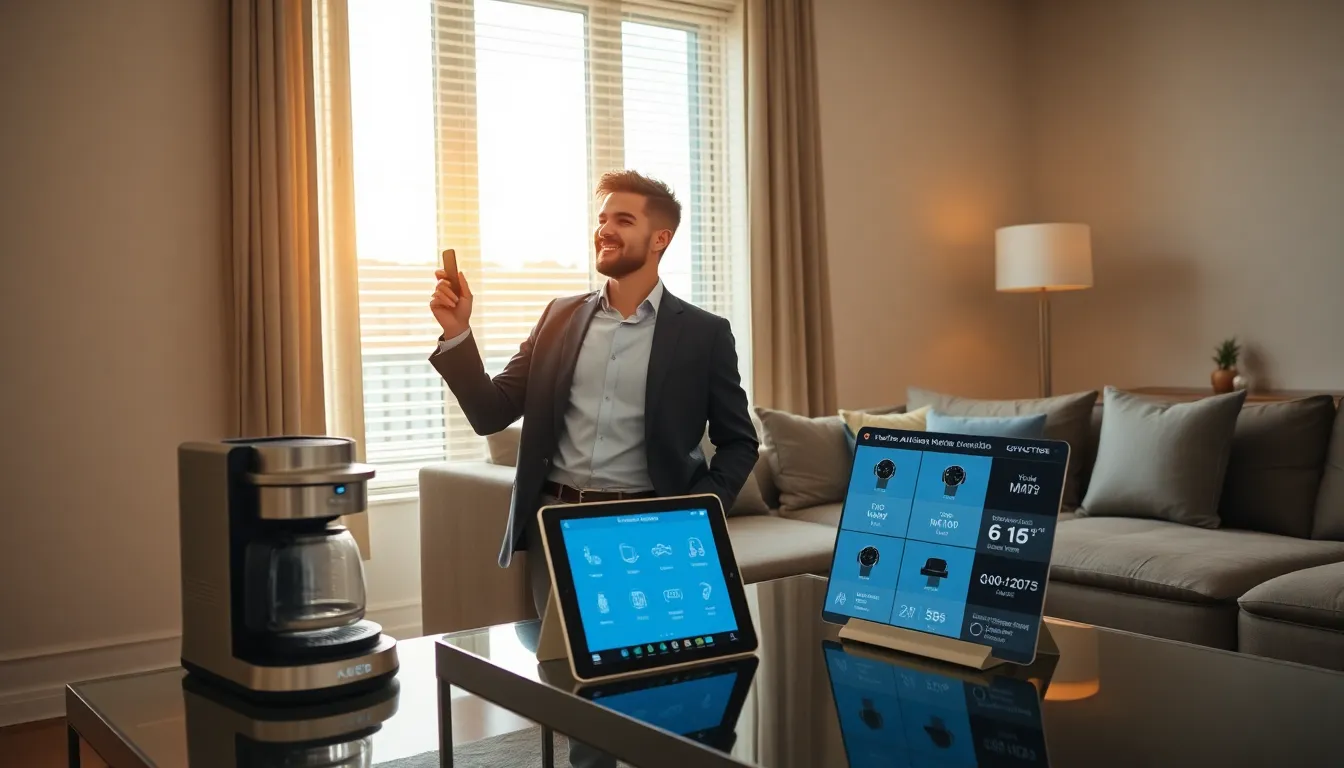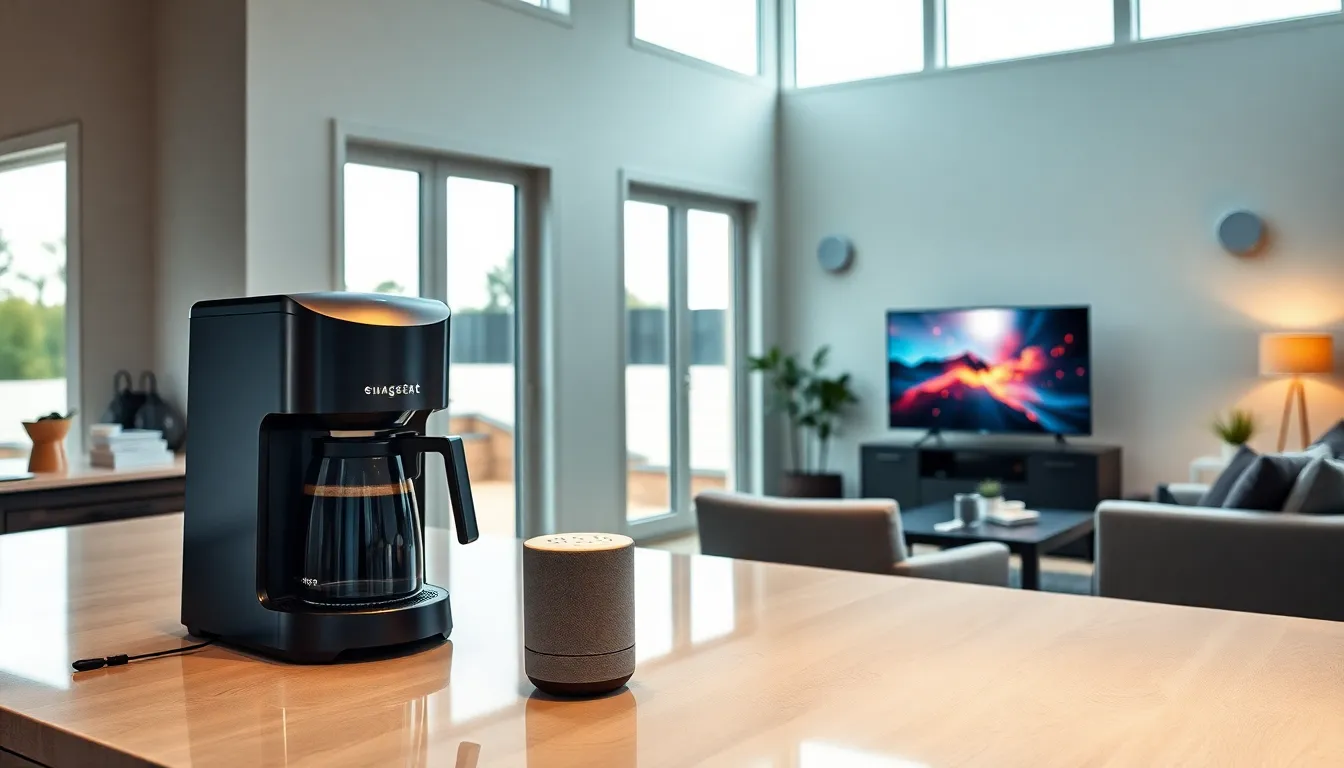When it comes to where to throw down your roots, the age-old debate between renting and buying a house is often at the forefront of discussions. Should you pay a landlord for life or invest in your own forever home? It’s a bit like choosing between renting a cozy apartment on the beach and planting your flag in a picturesque house on the hill. Let’s be real, this decision isn’t just about money: it’s a lifestyle choice that can impact every aspect of your life. So grab a cup of coffee, or maybe a glass of wine, and let’s jump into the pros and cons of renting and buying a house, because who doesn’t like a good debate?
Table of Contents
ToggleUnderstanding Renting

Advantages of Renting
Renting often comes with a unique sense of flexibility that homeownership can’t match. For instance, tenants can easily relocate for work or lifestyle changes without the hassle of selling a house. Also, renting typically requires a lower initial financial commitment, there’s no need to worry about hefty down payments, property taxes, or maintenance costs. Not to mention, many rental properties come with amenities like pools and gyms that you’d have to spend a fortune on if you were to buy.
Renting also frees individuals from the burden of repairs. When the ceiling leaks or the dishwasher breaks, the landlord handles it, leaving tenants with less stress and more time to binge-watch their favorite shows. In some cases, renting can even offer a location advantage. Want to live in a trendy neighborhood? Renting may allow that without the financial penalties that come with buying in upscale areas.
Disadvantages of Renting
But, renting isn’t all sunshine and rainbows: it comes with its own set of hurdles. For starters, renters don’t build equity. It’s like throwing money into a black hole, each month, cash flows out, and there’s no reward waiting at the end.
Also, landlords can be temperamental. A sudden rent hike can turn a cozy living situation into a financial squeeze. Besides, renters may face restrictions on personalizing their space. Love painting walls? Think again. The flexibility of renting can sometimes translate into a lack of true ownership. That feeling of home is often absent when you’re living under someone else’s roof, making it feel more temporary than permanent.
Understanding Buying
Advantages of Buying
On the flip side, buying a house can be a fulfilling venture. Homeownership is often touted as a means of investment. With the potential for property value appreciation, homeowners might find their investment paying off down the road.
Plus, owning a home offers the freedom to customize. Want to add that trendy farmhouse sink? Go for it. Homeowners can fully express themselves through renovations and decor decisions, transforming the space into a true reflection of who they are.
Finally, there’s the comforting notion of stability that comes with owning a home. No landlords, no lease agreements, just you and your space. This can be especially appealing for families looking for a sense of permanence. It becomes more than just a house: it’s a home.
Disadvantages of Buying
Nevertheless, homeownership comes with its own set of challenges. Upfront costs can be staggering, with down payments, closing costs, and a slew of fees piling up. Once the paperwork is signed, homeowners suddenly find themselves responsible for maintenance and repairs. A leaky roof isn’t just an inconvenient headache: it’s an unexpected expense that can quickly spiral out of control.
Also, the housing market can be unpredictable. Home values can fluctuate dramatically, leaving some homeowners underwater. Selling a home can also prove challenging, particularly in a down market. Jumping into the market is a long-term commitment that may not suit everyone.
Key Comparisons Between Renting and Buying
Financial Aspects
When evaluating renting vs buying from a financial perspective, the numbers often tell two different stories. Renting may seem less burdensome upfront, but over time, the cost of monthly rent could surpass what would’ve been mortgage payments. Homeownership can lead to equity building, but it takes years to make that initial investment. Hence, potential homeowners should weigh their current financial situation against long-term goals.
Lifestyle Considerations
Lifestyle plays a significant role in deciding whether to rent or buy. Renters may prioritize flexibility, thriving on change and adventure. Buyers, on the other hand, often seek stability. When deciding between the two, consider how one’s lifestyle influences the choice. Are you frequently on the move? Renting might suit your nomadic tendencies. Alternatively, if career aspirations and family planning suggest settling down, buying could be the better bet.
Long-Term vs Short-Term Needs
Thinking ahead is crucial in this debate. Renting suits those with short-term plans, like students or young professionals just starting their careers. The short lease periods afford them the chance to explore various neighborhoods before planting permanent roots. Conversely, buying a house caters to individuals who envision long-term commitments, whether due to a growing family or a geographical preference. Assessing needs allows individuals to clarify their decisions.






